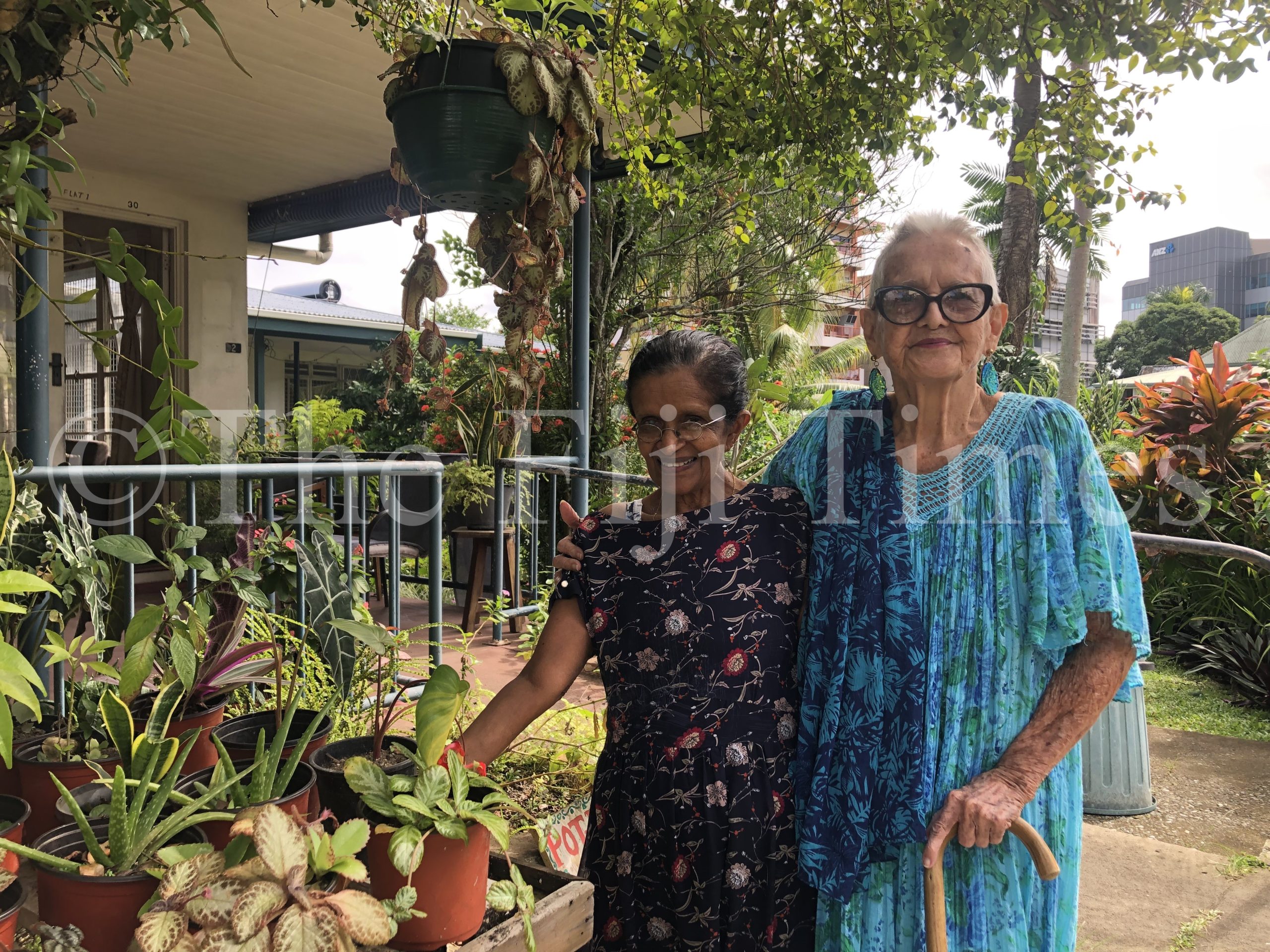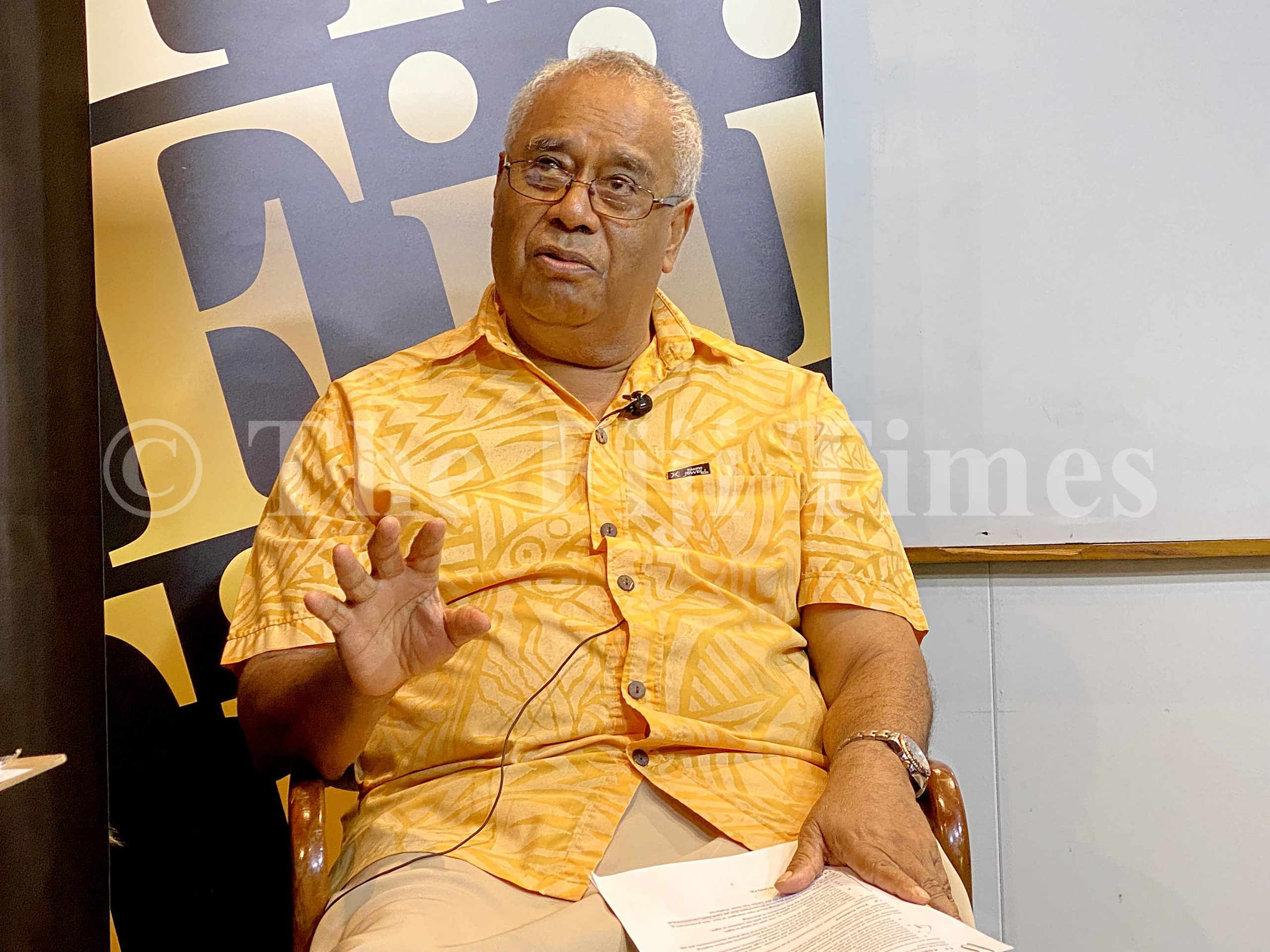EVEN in her twilight years, bespectacled Liebling still has a semblance of the dazzling queen that Fiji has come to know since 1956.
Winning the first ever Miss Hibiscus crown was an extraordinary fete, one she will always cherish in the treasure holds of her heart.
For no other woman in the world except Liebling Elizabeth Marlow (nee Hoeflich) can lay claim to it.
A team from this newspaper met up with the Pierce Home resident for an opportunity to retell her story as Fiji’s first Hibiscus queen, especially as news of the festival’s revival hots up.
Despite having to recall events that happened almost 70 years ago, when she was only a teenager raring to face the world, she vividly remembers them as if they happened yesterday.
Every detail, from the sweltering heat at the civic centre during the private judging to the colour of her gown on crowning night, remains deeply etched in her mind.
“First we had the public judging. Then the organisers drew those huge thick curtains to separate us from the public during the private judging,” she recalls.
“The room just became too hot but we had to sit in.”
She also recalls the anxiety she had over the yellow dress she wore, sewn by her mum, the late Faga Bentley.
Unknown to the mesmerised public and judges, the zip of her dress was missing.
However, her mum, someone she describes as “the best tailor ever” worked something out to keep the gown in place.
“I was worried every time I turned or walked on stage because I knew the zip was not fitted in but my mum who is from Rotuma did something to it. No one even noticed the missing zip,” she giggles.
That night, the slender and elegant 18-year-old in yellow dress was crowned the country’s first Miss Hibiscus.
“I didn’t believe it at all,” she says, “I was shocked because I was naive.”
Entering the competition was something she did not plan. Two of Liebling’s friends had secretly submitted her name as a festival contestant without her knowledge.
“But it all worked out. When they announced my name as the Hibiscus Queen, I tightly held onto the hands of the judge and just burst into tears.”.
“There were five of us and my prize was to travel to Sydney so I was really excited and I travelled there in February of 1957.”
Reminiscing those early days of the Hibiscus carnival, set to return in August this year after a lapse of five years, Liebling agrees a lot has changed, especially the fact that it has become over commercialised.
During those colonial days the festival was pretty much family oriented and fun, she says.
“It all started when a businessman by the name of Harvey Hunt, who had travelled to Hawaii and attended a pageant contest there, saw how beautiful the women were and thought of bringing a similar competition to Suva.”
“So he returned and organised it with other VIPs of Suva and we had the first Hibiscus carnival held at the town hall, now the civic centre.”
In 1957, after returning from her trip to Australia, Liebling was met with dilemma. She had arrived home to find her father was seriously ill.
“My dad was sick and was coughing out blood. So that was a very tough time for me because I was very close to him. He died in July from a severe lung cancer.”
Losing a father she loved dearly, Liebling’s world was shattered. She stepped in his big shoes and became the sole bread winner, supporting her mother who ran a sewing business. They lived in Draunibota, Lami.
To meet the demands at home, she worked in a variety of places including Morris Hedstrom and in 1960 she got married to her husband Herbert Marlow, a third generation Englishman whose family owned Marlow’s Construction, a popular construction company in the 1900s. The couple had two sons and the family travelled the world.
“My husband worked for the Bank of New South Wales but he had to leave his work because he was married to a part European girl, myself. At the time, you couldn’t be associated with coloured people if you want to work in a ‘palagi’ company,” Liebling says.
“So he joined Air Pacific and then Air New Zealand and we travelled the world with our sons.”
But her family happiness ended when disaster struck. Liebling’s husband left her for another woman and she lost another close friend whom she dearly loved.
Glorious days of wearing the coveted Hibiscus carnival crown flashed through her mind. She tried to pick the pieces of what her broken marriage had left behind and fought hard to hang onto a thin thread of hope.
She certainly didn’t expect her marriage to land on the rocks, and the loss of a close friend whom she described as “someone I loved very much” only added to her heavy burden. Fiji’s Queen of hearts was broken and she found it hard to bear the pain.
As her world came tumbling down and her struggles grew, Liebling wanted to commit suicide.
She had reached a point in life when she felt hopeless and vulnerable. There was little way out.
She moved to Pacific Harbour after the painful separation and life became cruel, too cruel that reason could not sway her from self harm. She thought the only way to escape her misery was to end her life.
“One day, I took a knife, held it in front of my chest and with my other hand I tried to locate my heart.”
“I told myself that I had better do it right and I had better die if I wanted to do this suicide thing because I couldn’t afford to be alive.”
But as luck would have it, in her most tragic and darkest moment lurked a silver lining.
“While I was fiddling around my chest and trying to locate my heart, a strong wind blew through my room, the door shut and behind it was a picture of Jesus.”
“I felt something that very moment, I felt frightened, my hand shook and the knife just dropped from my hands. I cried and cried and asked God for his forgiveness.”
As she got to the floor and cried her heart out to God, she visioned her childhood days of attending mass and St Joseph’s primary school, which was located at the current site of the Reserve Bank of Fiji building.
She thought of how she used to say the mass prayers in Latin and she knew, it was God who intervened and saved her.
“I knew, if I committed suicide, I wouldn’t have been able to live life with Jesus.”
“Friends visited me and took me to St Giles Hospital where I spent a month and returned home to Pierce Home where I continue to live. I want to encourage people to talk about their problems and don’t ever resort to suicide.”
“Suicide doesn’t resolve anything. I thank God I didn’t do it because today, I am good friends with my husband’s wife and she visits me when she comes to Fiji.”
“In fact, we are fortunate to have her in our lives, she is a lovely Rotuman woman and we are also related so when she comes here, the staff will say: ‘qori sa yaco mai nomu karua’.”
Liebling also spent a few years taking care of her husband’s daughter with his new wife.
Looking back, Liebling has no regrets. She believes her problems made her stronger and she hopes to share her life of love with everyone she comes in contact with.
“Life is beautiful,” she says.
“We should learn to always forgive and just love everybody!”





